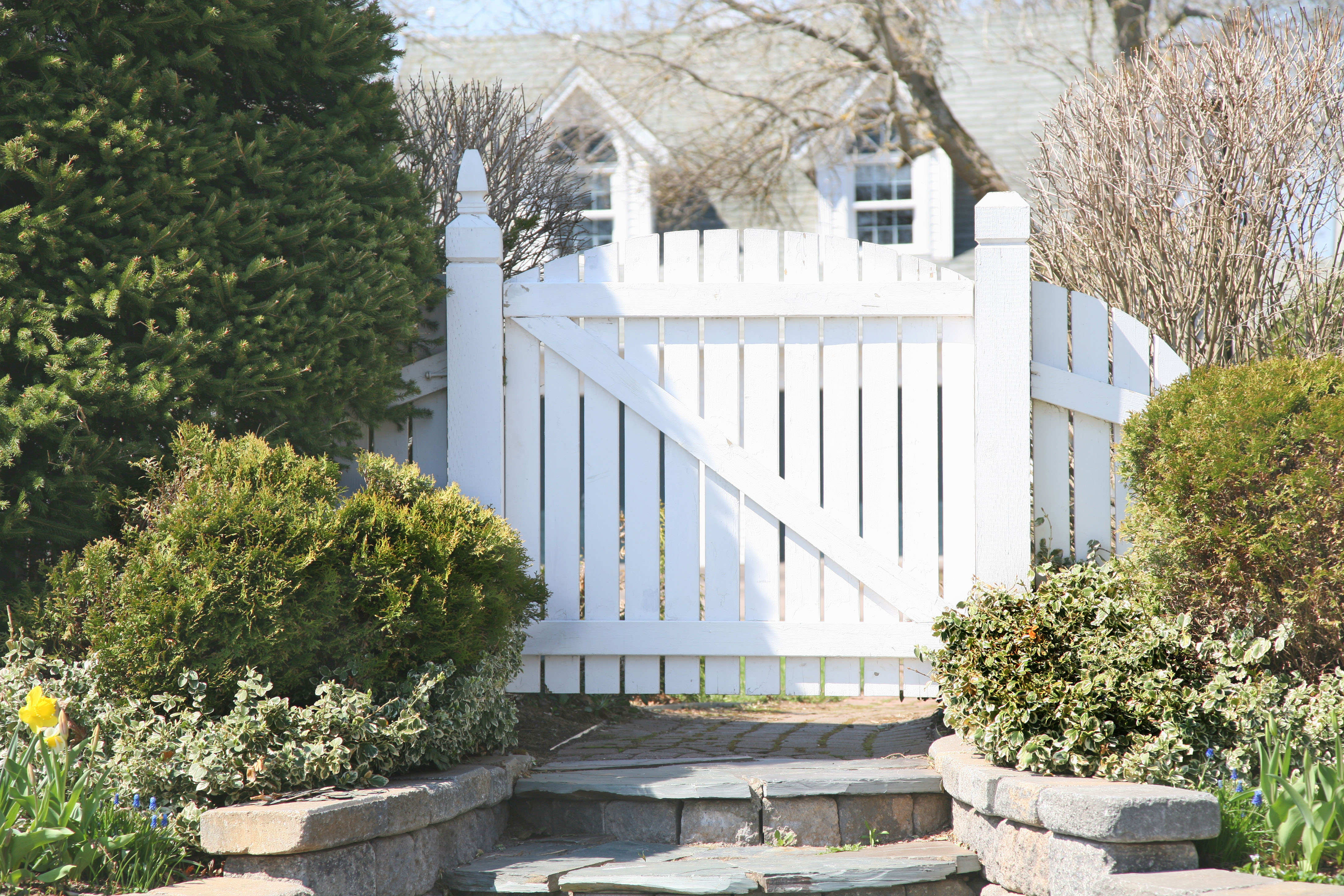How to build a fence gate – top tips from the experts
A well maintained fence gate will add instant curb appeal to your property. Here’s how to build a wooden fence gate to give guests a warm welcome


Now that summer is in full swing, it’s the perfect time to tackle those home improvement projects that you may have been putting off. A warm, dry day is ideal for building your own fence gate and it’s a DIY job that shouldn’t take more than a day if you have all your tools and materials at the ready.
If you are building a fence in your backyard, it's likely you will need to know how to build a fence gate, too. Our step-by-step guide below has all the information you need to design and build a wooden fence gate, though of course there are alternative garden gate ideas and options to match if you are installing a vinyl fence, or installing a chain link fence, or opting for wrought iron and other garden fence ideas in preference.
A wooden fence gate should be matched to the timber of your wooden fence. Ideally, choose a hardwood such as Iroko or European Oak, as these are the most durable and long lasting as they are resistant to all weathers as well as insects and fungus.
‘With so many different types of materials, you can have a setup that matches your home’s exterior perfectly,’ says Danny Scholfield, director at The Expert Gate Company. ’With a wooden gate, you can opt for a more rustic look and really make it your own by painting the wood for a complementary, complete look. Woods that work well are hardwoods like Iroko, Sapele, Idigbo, European Oak and Cedar. This is because they are denser woods that have a tighter grain. The makeup of woods like this can also help fight off insect attacks and harsh UV rays, especially if they are well-maintained with coats of staining and painting.’
How to build a fence gate
This project should only take a day at the most and it can be done by confident DIY-ers and those with basic carpentry skills. In most cases, gateposts should be around 610mm taller than the height of the gate itself. If you want something heavier and more durable then go for posts that are at least 760mm taller.
1. Treat the timber
Before you start, treat the gateposts with a wood preservative before fitting and setting into concrete. With the fixtures such as brackets and bolts, look for galvanized metal versions, as these won’t rust in the rain and wind. Another tip is to cut the top of the gateposts to a slant, in order to allow rainwater to drain off. Don’t forget to stain the top of this slanted top with wood preserver, too.
2. Work out the best position for the fence gate
Next, lie the gate down on the ground, facing the direction you want it to open. To position it in line with the posts, simply raise it using a couple of lengths of timber underneath, adding extra offcuts as needed to get the height desired.
3. Fix the hinges
The next task is to add the hinges. ‘Put the hinges in the correct position on the back of the gate,’ says Thomas Goodman, construction expert at My Job Quote, ‘then drill the first pilot hole after marking the screw locations. Drill the remaining pilot holes after driving in a screw to ensure the drill bit is not too large. After that, install the hinges with galvanized screws. Don’t install them until the gate is hung. After drilling the latch screws’ pilot holes, attach the latch by tightening the screws. When doing this, remember to leave a 5mm space between the gate and the post.’
4. Brace the gate
‘To ensure the structure is sound, brace the gate and posts with three lengths of wood,’ adds Thomas Goodman. ‘Mark the locations of the post holes using the braced gate. If necessary, level the ground where the gate opens with a spirit level to see if this is sufficient. If the ground is soft, dig a 200mm deep trench and 300mm wide between the post holes, then fill it with concrete. This will lessen the likelihood that the gate's weight will pull the posts inward. Lower the gate posts into the holes using a spirit level to make sure they are straight.’
5. Concrete into place
Using wooden props to keep the gate and posts in their position, mix the concrete and add to the ground around the posts. Wait a few days for it to dry, unless you are using a quick-drying cement, then you can remove the supports. ‘To ensure the wooden gate is able to withstand all the elements and to improve the aesthetic, you can give it a treatment of sanding, staining and painting,’ adds Danny Scholfield.
How high should the gate be from the ground?
You don’t want a gate to look like it’s floating if it’s too high but also, if it’s too low it will look just like the rest of the fence. It should be easily identifiable for anyone wanting to open it, so aim for about 4 or 5 inches off the ground.
Does a gate open inwards or outwards?
The rule of thumb is for a fence gate to swing inwards, towards the house or property and not outwards towards the public space or sidewalk. Hinges should be at the top and bottom as well as in the middle for extra strength and durability.
Sign up to the Homes & Gardens newsletter
Design expertise in your inbox – from inspiring decorating ideas and beautiful celebrity homes to practical gardening advice and shopping round-ups.

Hayley is an interiors journalist, content provider and copywriter with 26 years experience who has contributed to a wide range of consumer magazines, trade titles, newspapers, blogs and online content. Specialising in kitchens and bathrooms, she has twice won the CEDIA Award for Best Technology feature. Hayley writes for H&G about kitchens, bathrooms, cleaning, DIY and organizing.
-
 6 ways to decorate a windowless room, according to interior designers who have tackled the challenge
6 ways to decorate a windowless room, according to interior designers who have tackled the challengeA windowless room is undeniably a hard room to decorate, but with these beautiful examples and expert tips, you'll be inspired to look at your space in a new light
By Udita Choudhary
-
 5 things professional cleaners always do to overcome a cleaning roadblock – they're surefire ways to feel 'motivated and clear-headed' experts say
5 things professional cleaners always do to overcome a cleaning roadblock – they're surefire ways to feel 'motivated and clear-headed' experts sayGet your cleaning schedule back on track
By Ottilie Blackhall